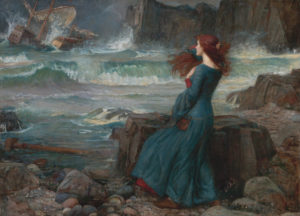http://www.youtube.com/watch?v=afn6lwPaSjo This video is in Italian (I’m guessing), but there are subtitles. The premise is a retelling of Romeo and Juliet where they are fans of rival soccer teams. Not a bad idea. I guess it’d be funnier if you’re local to wherever the film was made and understand the teams involved.
Category: Shakespeare Plays
William Shakespeare is widely regarded as one of the most influential playwrights in history, and his plays have been performed and studied for centuries. From the timeless tragedy of Romeo and Juliet to the hilarious antics of A Midsummer Night’s Dream, Shakespeare’s plays continue to captivate audiences around the world. Whether you’re a fan of tragedy, comedy, or romance, there’s a Shakespeare play for everyone. So why not revisit these timeless classics and discover the magic of Shakespeare for yourself?
Browse the entire text of Shakespeare’s plays right here on Shakespeare Geek.
Romeo and Juliet : Mad Libs
http://library.thinkquest.org/10502/rajlib.htm Have I linked to something like this before? I can’t remember, but it seems familiar. Anyway, you know Mad Libs, right? This is the game where you fill in a name, a verb, an adjective…. and then you read the story you produced. Only in this case it’s Act 4, Scene 5 where the Nurse has found Juliet’s lifeless body. I always thought Mad Libs are funnier if you see the template first, and then deliberately fill in goofy words.
Claymotion Romeo and Juliet
http://www.canadianshakespeares.ca/multimedia/video/j_mill_complete_video.mov This isn’t what I thought it was going to be. It’s Romeo and Juliet, sort of . With space aliens.
Daddy, Can I Read Your Book?
That’s what my 3yr old asked me this morning while I was getting ready to go to work.
“Sure,” I told her.
 The thing is, the book was King Lear. More specifically, it was one of the comic versions of Shakespeare that I have. I also have The Tempest as I’ve mentioned, Taming of the Shrew, and Romeo and Juliet. In general I have refused to actually read them the story of King Lear, as we don’t do that degree of violence in my house (hence my emphasis on the non-violent Tempest).
The thing is, the book was King Lear. More specifically, it was one of the comic versions of Shakespeare that I have. I also have The Tempest as I’ve mentioned, Taming of the Shrew, and Romeo and Juliet. In general I have refused to actually read them the story of King Lear, as we don’t do that degree of violence in my house (hence my emphasis on the non-violent Tempest).
But she does like to look at the pictures. So there she sat, doing her morning business, flipping through the pages. Like any 3yr old she was also carrying around what if she were a boy I would call “action figures” – small statues of her favorite Disney princesses, including Belle and Ariel.
“Her name is Cordelia,” my daughter tells me, pointing at the Belle figure. Then she points to the cover of the book and asks, “Is that Cordelia with the red hair?”
I look at the cover and sure enough, Cordelia is in fact the one with the red hair. “That is Cordelia,” I tell her. “And those are her sisters, Regan and Goneril.”
I think I reached her limit, though, as I never heard the names of the evil sisters mentioned. She did go off playing, speaking of Cordelia’s friends Jossa, Brak and Ryda, which I thought was rather unusual. At first I thought she was getting in to the imaginary friends stage (her older sister’s imaginary friends were named Cartlyn, Neejin and Lonoze). But then I wondered if maybe hearing all the weird names in Shakespeare that she hears nowhere else, she’s tuned to thinking that names can in fact be any stream of sound, and not just repetition of the same names she’s heard over and over again.
Romeo and Juliet
http://geek.shakespearezone.com/?p=2529 Tad Davis, in what appears to be his first post on a new blog, merits a link for the depth of his analysis of Romeo and Juliet while still remaining actually readable. It’s not a small novel, it goes maybe 10 paragraphs, but he manages to touch upon the loneliness of Juliet in the second act, points out a few of the more overt sexual references, makes a comparison of Lord Capulet to King Lear, offers some thoughts on staging in the Globe, and even hypothesizes parallels to Shakespeare’s own children. I’m not sure I agree with his opening line that the play “has to be his most heartbreaking one.” It’s certainly his most popular and approachable (who hasn’t been in love with someone that society told them they couldn’t have?) But I think that both Cordelia and Ophelia both die more tragic deaths than Juliet.
